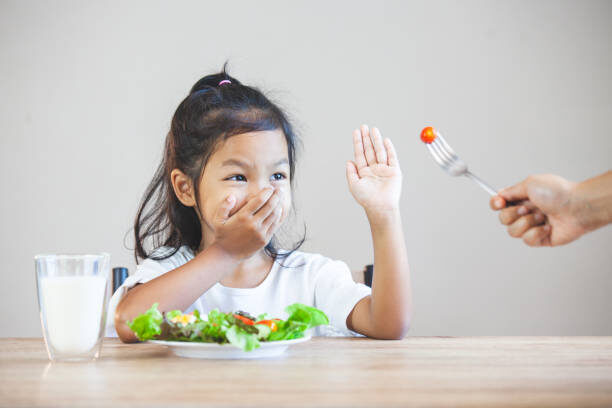Promote Attachment With Kids Feeding Them


In early childhood children begin to learn how to navigate the world. They are learning about how to have relationships with others, themselves, as well as developing their sense of self. Parents and caregivers play a critical role in a child's development, especially in regards to their relationship with food (Savage et al., 2007). Research has demonstrated the importance of building a positive relationship with food and establishing food neutrality. (Balantekin et al., 2020; Savage et al. 2007). Adopting practices that encourage a positive relationship with food in children has shown to increase a sense of autonomy and control for the child as well as decrease restrictive/binging eating patterns (Balantekin et al., 2020). Therefore, it is important to model and teach children how to interact with food in a way that is healthy. To do this it is important to provide structure and opportunities for choice as well as model for them that food is neither good nor bad, it just is. So, where to start?

Establish structure and schedules for meal times
- Establishing set meal times provides children with the security and knowledge that they always will get fed. This can help decrease the need to eat excessively at a meal time because they know that there is a snack or meal right around the corner.
Avoid labels
- Labeling food as "good for you" or "bad for you" has the potential to develop into a mindset of "I am bad if I eat this" or "I am good if I eat this". Instead we want to teach children that all food has a purpose! By not labeling food we are modeling food neutrality and that everything is okay to eat.
Provide choices
- Providing choices inherently builds autonomy because they get to choose what is best for them in the moment. Choices also have the potential to decrease meal-time meltdowns because they are the one that decides out of the options presented. If you are sitting down for dinner, having several different choices available can be helpful (this does not mean different meals!). Choices may be: chicken, carrots, broccoli, apples, cookies, pasta (notice how these are all things that make up a meal you may already eat). Letting your child choose what to eat out of these items gives them the opportunity to try new things without the pressure. I always recommend having one "safe food" that you know your child enjoys at any meal time to ensure they are eating something!
Set boundaries
- Remember you are still the parent! Even though, we want our children to have autonomy and awareness of what their body needs, sometimes things are just not on the menu. So, if a child is asking for pizza for dinner and dinner is already planned, it is okay to say: "I hear you want pizza right now, but tonight we have pasta on the menu. We can have pizza tomorrow for dinner". This lets the child know you hear their wants and needs, while still sticking to what works for you!

Our goal is to teach our children that they have autonomy over themselves, so that later in life they trust themselves to make choices that are right for them! If you have concerns about your child's eating patterns or food intake, reach out to your primary care provider. Your doctor can help to point you in the right direction of an Occupational Therapist for sensory concerns around food, a Nutritionist to provide support around increasing food/vitamin intake, or a therapist to address anxiety and/or emotional needs around eating.
Resources for more language and tips for feeding kids:
https://kidseatincolor.com/
https://nicolecruzrd.com/
About the Author: Samantha Renner is completing her Master of Social Work and has an internship at Crossroads Family Counseling Center.
References
Balantekin, K. N., Anzman‐Frasca, S., Francis, L. A., Ventura, A. K., Fisher, J. O., & Johnson, S. L. (2020). Positive parenting approaches and their association with child eating and weight: A narrative review from infancy to adolescence. Pediatric Obesity, 15(10). https://doi.org/10.1111/ijpo.12722
Savage, J. S., Fisher, J. O., & Birch, L. L. (2007). Parental influence on eating behavior: Conception to adolescence. Journal of Law, Medicine & Ethics, 35(1), 22–34. https://doi.org/10.1111/j.1748-720x.2007.00111.x
shewmakerdecterral.blogspot.com
Source: https://crossroadsfamilycounselingcenter.com/children-and-food/
0 Response to "Promote Attachment With Kids Feeding Them"
Post a Comment